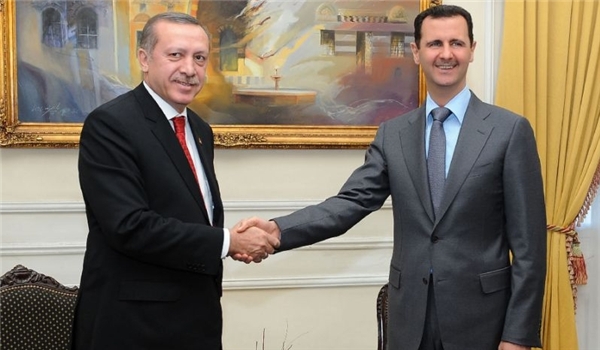
RNA - Erdogan's rare visit to Amman and before that the more important trip of Chief of Staff of Iran's Armed Forces Major General Mohammad Hossein Baqeri to Ankara and endorsement of a strategic military agreement between the two countries as well as Iranian President Hassan Rouhani's response to the US sanctions by threatening to resume 20% enrichment all show that the region is on the verge of important developments and the new coalitions will replace the old ones, Atwan wrote in the Arabic-language Ray al-Youm newspaper on Wednesday.
"And now in this new arrangement, friends and foes might exchange their positions," he added.
"Although it is true that Assad has given harsh words to Erdogan in his comments, the Turkish president may still visit Damascus after mediation by Russia and Iran and this is the nature of politics," Atwan underscored.
Al-Ray al-Youm had disclosed earlier this month that officials in Ankara have reportedly halted their financial support for Syria's National Coalition (Syria's dissidents).
The daily quoted sources in the National Coalition disclosing that Turkey has not made its monthly payment of $320,000 to the dissidents.
In the meantime, Secretary-General of Syria's National Coalition Nazir al-Hakim disclosed that the monthly salaries of 15 coalition staffers have decreased.
Turkey early in August denounced a US Special Envoy remarks that Ankara supports al-Qaeda in Syria, accusing Washington of backing Kurdish terrorists in the Arab state.
Brett McGurk, the US special envoy for the so-called global coalition against ISIL, reportedly said that Syria's Idlib was turned into a “safe zone for al-Qaeda terrorists on the Turkish border” and asked “Why and how” the deputy of al-Qaeda leader, Ayman al-Zawahiri, could get to Idlib.
The high-ranking American official, speaking at Middle East Institute on July 29 said it was not appropriate for its NATO-member ally “to send tens of thousands of weapons and turn their faces to the other side as foreign fighters enter this area.”
847/940